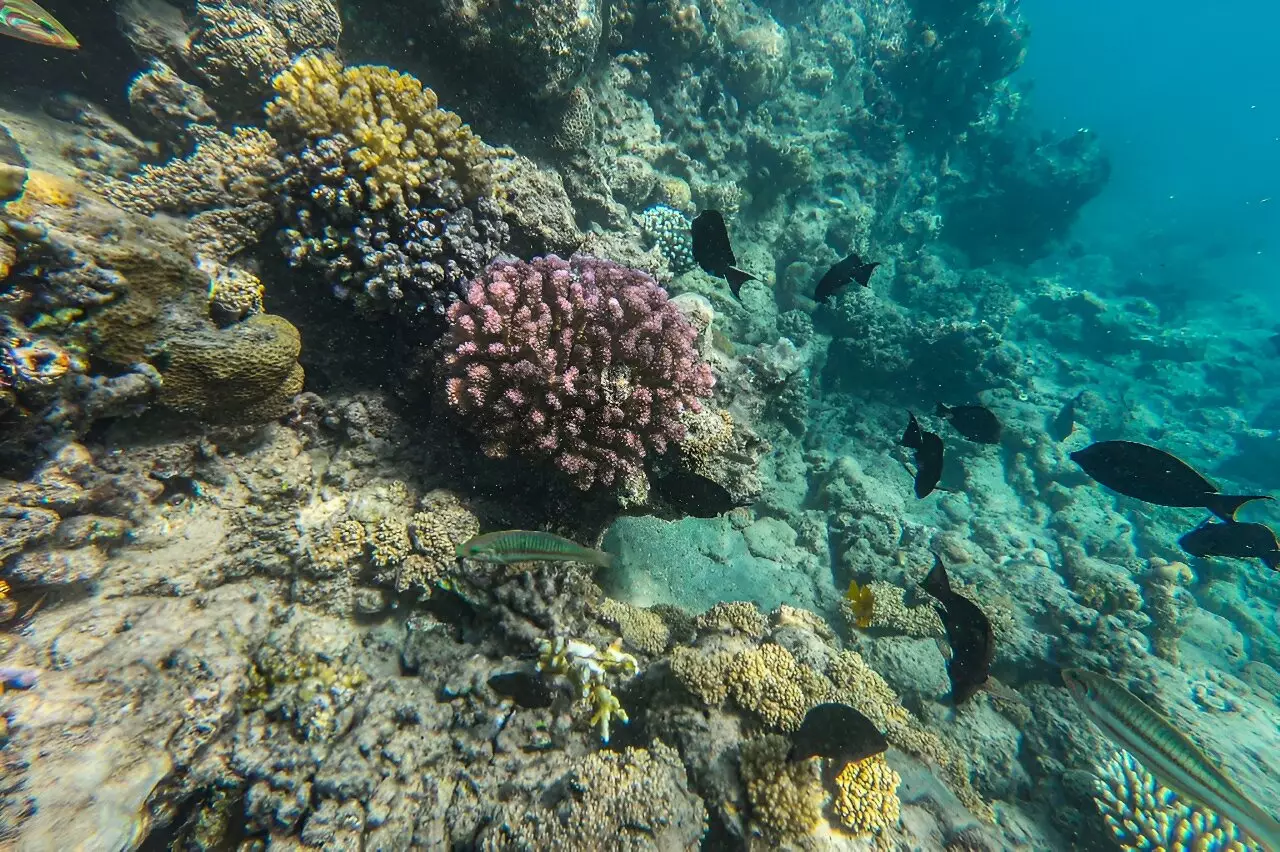Marine heat waves are becoming more frequent and intense due to climate change, and researchers have found that these extreme events may last longer and be more intense in deeper waters. This poses a significant threat to sensitive species that are unable to migrate to escape intolerably warm waters. The impacts of marine heat waves have primarily been studied at the ocean surface, but a new study has shed light on the characteristics and effects of these heat waves below the surface.
In a study published in the journal Nature Climate Change, researchers examined global marine heat waves from 1993 to 2019, including data below the surface at depths up to 2,000 meters. They discovered that the intensity of marine heat waves was highest at depths ranging from 50 to 200 meters, occasionally being up to 19 percent stronger than the surface heat wave. This highlights the significant impact that these heat waves can have on species inhabiting deeper waters.
The study also found that the duration of marine heat waves increases with depth, with warming persisting up to two years after temperatures return to normal on the surface. Researchers looked at a proxy measure of thermal stress known as cumulative intensity and mapped it against the distribution of biodiversity at the edge of their maximum heat limits. They discovered that up to 22 percent of the global oceans experience high-stress conditions, potentially making marine creatures more vulnerable to changes.
Measuring the exposure of biodiversity to marine heat waves is complex due to regional variability. The duration of these heat waves varies by location, influenced by different oceanic conditions. The study suggests that the impact on biodiversity is likely to be greatest from the surface to a depth of 250 meters. Areas highly exposed to marine heat waves were found in the North Atlantic and Indian oceans, specifically at depths between 1,000 and 2,000 meters. These findings highlight the need for targeted conservation efforts in these regions.
While some marine creatures may be able to withstand marine heat waves without major impacts on their numbers, more research is needed to fully understand the effects on deep-sea biodiversity. The potential impacts on tourism and fisheries also require further investigation. As marine heat wave impacts on deep-sea biodiversity are still largely unknown, there is an urgent need for enhanced global ocean monitoring to gain a comprehensive understanding of the effects of these extreme events.
Marine heat waves are intensifying and occurring more frequently, posing a threat to sensitive species that cannot escape intolerably warm waters. The study highlights that these heat waves may last longer and have higher intensity in deeper waters, affecting biodiversity and potentially causing long-term disruptions. To mitigate these impacts, it is crucial to prioritize conservation efforts and conduct further research to understand the full consequences of marine heat waves on deep-sea ecosystems. The urgent need for better monitoring and improved understanding of these events is vital for effective management and preservation of our oceans.


Leave a Reply